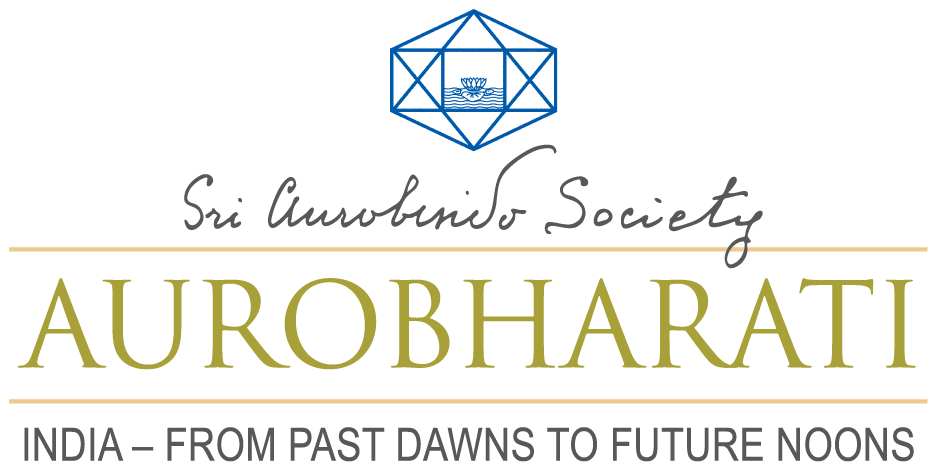National Symposium on Spiritual Tourism
Location: Pondicherry University
Institute: AuroBharati
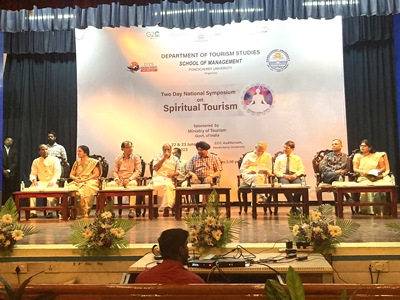
A two-day National Symposium on ‘Spiritual Tourism’ was organized by the Department of Tourism, Pondicherry University in collaboration with the Ministry of Tourism, Government of India from 22nd-23rd June, 2023 at Pondicherry University. The Department of Tourism Studies, Pondicherry University organized a spate of sessions that configured five Experiential Sessions; two Panel Discussion sessions, two Workshops; three Distinguished Addresses, and a session on the presentation of research papers.
The inaugural function was held at the Cultural-cum-Convention Centre of Pondicherry University to mark International Yoga Day. Sri.K. Lakshminarayanan, Minister for Tourism, Govt. of Puducherry inaugurated the Symposium. Prof. Gurmeet Singh, Vice- Chancellor, Pondicherry University and Chief Patron of the Conference presided over the function. Sri. K. Lakshminarayanan in his inaugural address stated that the 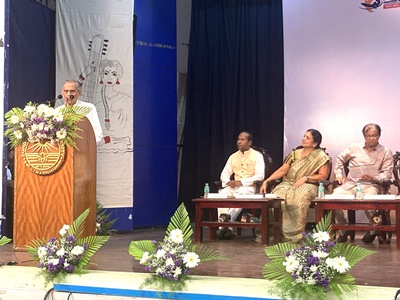 deliberations of the symposium will go a long way in finding solutions to the challenges faced by the progressive ideals of spiritual tourism. Prof. Gurmeet Singh, VC, underscored the profound relevance of the themes as having path-breaking effects on leveraging the synergy between industry, academia and public sector agencies in the realm of spiritual tourism. Prof. Pawan Kumar Singh, Director, Indian Institute of Management, Trichy delivered the Keynote Address. Prof. Alka Kumar Das Mohapatra, Vice-Chancellor, Odisha State Open University and Sri. Pradeep Narang, Chairman, Sri Aurobindo Society were the Guests of Honour for the function. Dr. Anu Chandran, Head of the Department & Organising Secretary of the symposium welcomed the gathering. Prof. Sampada Kumar Swain, Convener presented the scope of the Symposium.
deliberations of the symposium will go a long way in finding solutions to the challenges faced by the progressive ideals of spiritual tourism. Prof. Gurmeet Singh, VC, underscored the profound relevance of the themes as having path-breaking effects on leveraging the synergy between industry, academia and public sector agencies in the realm of spiritual tourism. Prof. Pawan Kumar Singh, Director, Indian Institute of Management, Trichy delivered the Keynote Address. Prof. Alka Kumar Das Mohapatra, Vice-Chancellor, Odisha State Open University and Sri. Pradeep Narang, Chairman, Sri Aurobindo Society were the Guests of Honour for the function. Dr. Anu Chandran, Head of the Department & Organising Secretary of the symposium welcomed the gathering. Prof. Sampada Kumar Swain, Convener presented the scope of the Symposium.
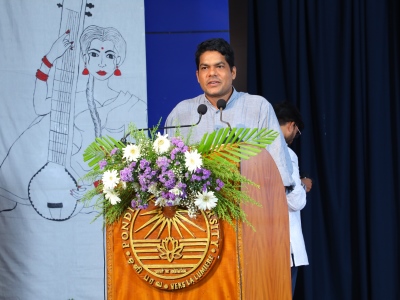 Speaking at the inaugural session, Shri Pradeep Narang, Chairman, Sri Aurobindo Society, Puducherry said that he expressed ardent hope that the Symposium at the national scale can galvanize the action-plans to position India as a pioneer and leader in spiritual tourism. He said that the spirit cannot be perceived by the five senses. In ordinary tourism pertaining to religion, politics etc. it is another matter where all their senses are involved. Anything spiritual is intangible.
Speaking at the inaugural session, Shri Pradeep Narang, Chairman, Sri Aurobindo Society, Puducherry said that he expressed ardent hope that the Symposium at the national scale can galvanize the action-plans to position India as a pioneer and leader in spiritual tourism. He said that the spirit cannot be perceived by the five senses. In ordinary tourism pertaining to religion, politics etc. it is another matter where all their senses are involved. Anything spiritual is intangible.
As part of the symposium, Dr. Kishor Kumar Tripathy attended a panel discussion on the topic ‘Spiritual Tourism vis-à-vis Preservation of Culture and Heritage with special reference to Tangible and Intangible Cultural heritage.’ The session was chaired by Prof. G.J. Sudhakar, Professor Emeritus, CPR Institute of Indological Research, Chennai was the Chairperson of this session. Speaking on the occasion, Dr. Tripathy focussed on the preservation of heritage and culture with special emphasis on Tangible and Intangible 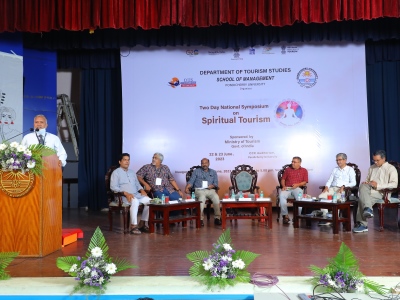 Cultural Heritage. He emphasized the vision of Maharshi Aurobindo ‘The most vital issue of the age is whether the future progress of humanity is to be governed by the modern economic and materialistic mind of the West or by a nobler pragmatism guided, uplifted and enlightened by Spiritual culture and knowledge.’ He said that heritage and culture and heritage is an important factor in promoting spiritual Tourism. Spiritual Tourism is about visiting holy and spiritual places of worship belonging to different religions and to gain spiritual experiences. There is an urgent need to preserve the heritage, which was flourished through both Tangible and Intangible culture. He said that there are tremendous possibilities to develop spiritual Tourism in India. Emphasizing on intercultural understanding and cross-cultural connections, he gave the example of many heritage sites around the world which are threatened and lost. He emphasized on conservation and preservation of the heritage which can be useful for the future of humanity.
Cultural Heritage. He emphasized the vision of Maharshi Aurobindo ‘The most vital issue of the age is whether the future progress of humanity is to be governed by the modern economic and materialistic mind of the West or by a nobler pragmatism guided, uplifted and enlightened by Spiritual culture and knowledge.’ He said that heritage and culture and heritage is an important factor in promoting spiritual Tourism. Spiritual Tourism is about visiting holy and spiritual places of worship belonging to different religions and to gain spiritual experiences. There is an urgent need to preserve the heritage, which was flourished through both Tangible and Intangible culture. He said that there are tremendous possibilities to develop spiritual Tourism in India. Emphasizing on intercultural understanding and cross-cultural connections, he gave the example of many heritage sites around the world which are threatened and lost. He emphasized on conservation and preservation of the heritage which can be useful for the future of humanity.
As part of the symposium, workshop and demonstration programme on ‘Vedic Chanting: Intangible Culture, Tradition and Continuity’ was organized. The session was facilitated by Dr. Kishor Kumar Tripathy and the Acharyas and students of Vedasharama Gurukulam, Karuvadikuppam, Puducherry. Speaking on the occasion, Kishor Kumar Tripathy said that Vedic Chanting as Intangible Cultural Heritage and one of the world’s oldest surviving cultural traditions. Highlighting the glorious history of the Vedas, he informed about 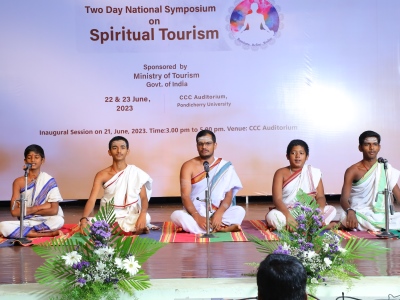 the vision of Maharshi Aurobindo on the Vedas, including The Secret of the Veda, Hymns to the Mystic Fire and works on the Upanishads. The second part of the session was based on chanting of the sacred Mantras by the Acharya Shri Guruprasad Bhatt and students of Vedasharama Gurukulam, Puducherry. They recited selected suktas of the Vedas including Shraddhasukta, Medhasukta, Sarasvati Vandana, Shantimantra and Ghanapatha. Aspects of Vedic chanting including, traditional, contemporary and living, oral tradition, inclusive nature, representative, community-based approach and international recognition were discussed.
the vision of Maharshi Aurobindo on the Vedas, including The Secret of the Veda, Hymns to the Mystic Fire and works on the Upanishads. The second part of the session was based on chanting of the sacred Mantras by the Acharya Shri Guruprasad Bhatt and students of Vedasharama Gurukulam, Puducherry. They recited selected suktas of the Vedas including Shraddhasukta, Medhasukta, Sarasvati Vandana, Shantimantra and Ghanapatha. Aspects of Vedic chanting including, traditional, contemporary and living, oral tradition, inclusive nature, representative, community-based approach and international recognition were discussed.
The main objective of the symposium is to initiate dialogue among the stakeholders and the think tanks for the Preservation, Interpretation, and Promotion of Spiritual Tourism in India. India basks in the glory of a rich heritage and culture providing abundant opportunities for innovations in Spiritual Tourism.
